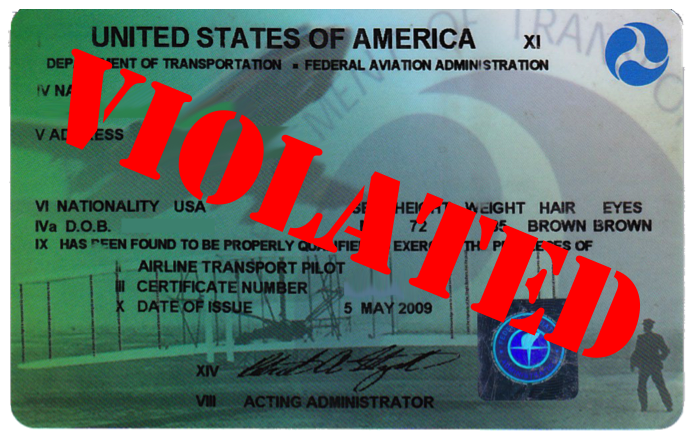
Editor's note: The first part of this article about getting a call from the tower gives tips on how to handle the situation.
If things become more serious, you might expect to see a Letter of Investigation (LOI). Under FAA Order 2150.3C, Compliance and Enforcement Program, an LOI will not be issued unless there is:
(1) Intentional Conduct: A deliberate act (or failure to act) while knowing that such conduct is contrary to a regulation or statute, or is otherwise prohibited.
(2) Reckless Conduct: An act (or failure to act) demonstrating a gross disregard for or deliberate indifference to safety or a safety standard.
(3) Failure to Complete Corrective Action: Failure to complete corrective action on terms satisfactory to the FAA.
(4) Conduct Creating or Threatening to Create an Unacceptable Risk to Safety: Conduct that creates or threatens to create a high level in the likelihood and/or severity of significant risk to safety, when the director of the program office determines that alternative means to address the noncompliance and to effectuate immediate and future compliance would not be sufficient.
(5) Legal Enforcement Required by Law: The express terms of a statute or regulation require the initiation of a legal enforcement action.
If one or more of these conditions are not met, the FAA must use a warning notice or letter of correction, or compliance action.
If an LOI is required, it will be sent by certified mail, return-receipt requested, or by registered mail. It normally specifies a 10-day period for reply. The stated intent of the LOI is “learning the other side of the story.” I have met with FAA “headhunters” who were out for pilot scalps but not in many years. I have contacts inside the organization who assure me those days are over. But as a professional pilot, remember that this is your livelihood we are talking about.
Your next stop should be with a lawyer who specializes in defending against FAA enforcement actions. Find one who has an established reputation with the FAA and can give you an honest assessment of your chances and the best way to pursue your case. If you are a member of the Aircraft Owners and Pilots Association, you can receive a lawyer at no cost for up to 10 hr. at the time of this writing (http://pilot-protection-services.aopa.org).
In the end, the FAA may decide that you are innocent or that there is insufficient evidence to issue a violation. If it decides a violation did occur, you could end up with oral or written counseling, remedial training, instructions to voluntarily surrender your certificate, a suspension of your certificate, revocation of your certificate, civil penalties, or various combinations of each. While appeals to the NTSB are possible, the board is required to defer to the FAA in most cases.
Realize the Goal Is Safety
I can tell you that hearing, “I’d like you to call me when you land,” can be a stress-inducing event. Subconsciously, even if you feel certain you’ve done nothing wrong, you know it can be a “career enhancing” moment that could end badly. From personal experience, and from those I know and trust, I have come away with a few ideas that should serve you well if this happens to you.
*Don’t panic. The person asking you to call is on your side and may just need some help understanding what happened.
*Document everything. Not because you expect to end up in court, but to keep the events fresh in your mind. Having contemporaneous notes that you wrote on the day of the event establishes a paper trail that is far more valuable than a statement that begins, “As far as I can recall….”
*Be honest. If you made a mistake, fess up. Your attitude, or lack of one during that phone call, can mean the difference between a friendly chat and an LOI in the mail. Nobody is out to collect your scalp, and everyone realizes aviation is a complicated business. We all make mistakes.
*But if you do end up with an LOI, seek legal counsel before responding. Not because “they” are out to get you, but because this is your livelihood we are talking about. Make sure someone who has been there before helps you the first time it happens to you.





